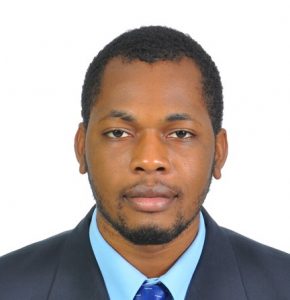Guimond Pierre Louis of Haiti, a student in this year’s International Peacemaking Program, has been awarded a place in the 2018 FASPE (Fellowships at Auschwitz for the Study of Professional Ethics) program. He is one of 13 to receive the fellowship from a pool of close to 150 applicants.
The FASPE program, according to its website, “provides a unique historical lens to study contemporary ethics in the professions.”
“FASPE offers fellowships to students pursuing professional degrees in business, journalism, law, medicine and religion, as well as to early-career professionals in these fields. Fellows in each of FASPE’s five programs spend two intensive weeks in Germany and Poland, visiting Auschwitz and key historical sites in Berlin and Krakow, and participating in rigorous seminars led by experts in their respective fields. Fellows begin their studies by examining the roles their professional counterparts played in Germany and elsewhere from 1933-1945, and then draw on historical, cultural, philosophical, literary and discipline-specific sources to explore the ethical issues facing their fields today.”
Guimond was born and raised in a countryside village in western Haiti. He earned his bachelor’s degrees in accounting and theology at Episcopal Church University in Port-au-Prince. He is now a transitional deacon in the Episcopal Diocese of Haiti and will be ordained as a priest soon.
“My interest in FASPE lies in the experiences and knowledge I will be having in studying professional ethics using the Holocaust as a backdrop,” he said. “FASPE will definitely influence my growth as a religious leader in terms of insights, skills, knowledge, and it will equip me to face the challenges I will encounter in and out of the ministry field.”
The International Peacemaking Program has been Hartford Seminary’s flagship scholarship program since 2004. Fellows in the International Peacemaking Program spend an academic year studying interfaith dialogue, conflict transformation, and leadership skills. They live in intentionally interfaith housing on campus, spend time in local faith communities, and receive practical skill-building training to enhance their capacity as peacemakers.

 Sign-up now ›
Sign-up now ›